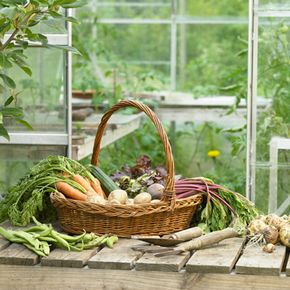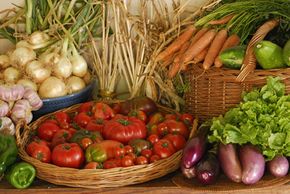Those of us who eat salads for lunch instead of burgers often make the sacrifice in the name of slimmer thighs. It turns out that's just the beginning of the benefits of eating lots and lots of vegetables. Foods like broccoli, spinach, carrots, green beans and kale can keep blood pressure down, reduce the risk of certain cancers, such as mouth cancer and prostate cancer, maintain a healthy digestive tract, aid in insulin regulation in diabetics and keep macular degeneration at bay. And if you eat enough of that salad, your chances of dying from heart disease or stroke decrease dramatically.
Vegetables can actually prevent your arteries from getting clogged. A study published in 2006 reported that mice that were bred to develop atherosclerosis (clogged arteries) quickly experienced a 38 percent decrease in artery plaque buildup when they were fed vegetables [source: Time]. A long-term study of more than 100,000 people, conducted by a team at Harvard, found that subjects who ate at least eight servings of vegetables a day were 30 percent less likely to develop heart disease than subjects who ate 1.5 servings [source: Harvard]. And another study produced impressive results with carrots and squash. Of 1,300 senior citizens tracked in Massachusetts, those who ate at least 1 cup of carrots or squash every day were 60 percent less likely to have heart problems [source: WHF].
Advertisement
How can vegetables keep arteries from narrowing? While there are probably lots of components that give vegetables this ability to keep the heart going strong, some of the most intense research has addressed the role of fiber. Fiber definitely helps the heart stay clear. A major antioxidant in carrots -- beta-carotene -- also may help, but it depends on which studies you look at and who you ask. So we'll focus on fiber, a substance the medical community can agree on.


